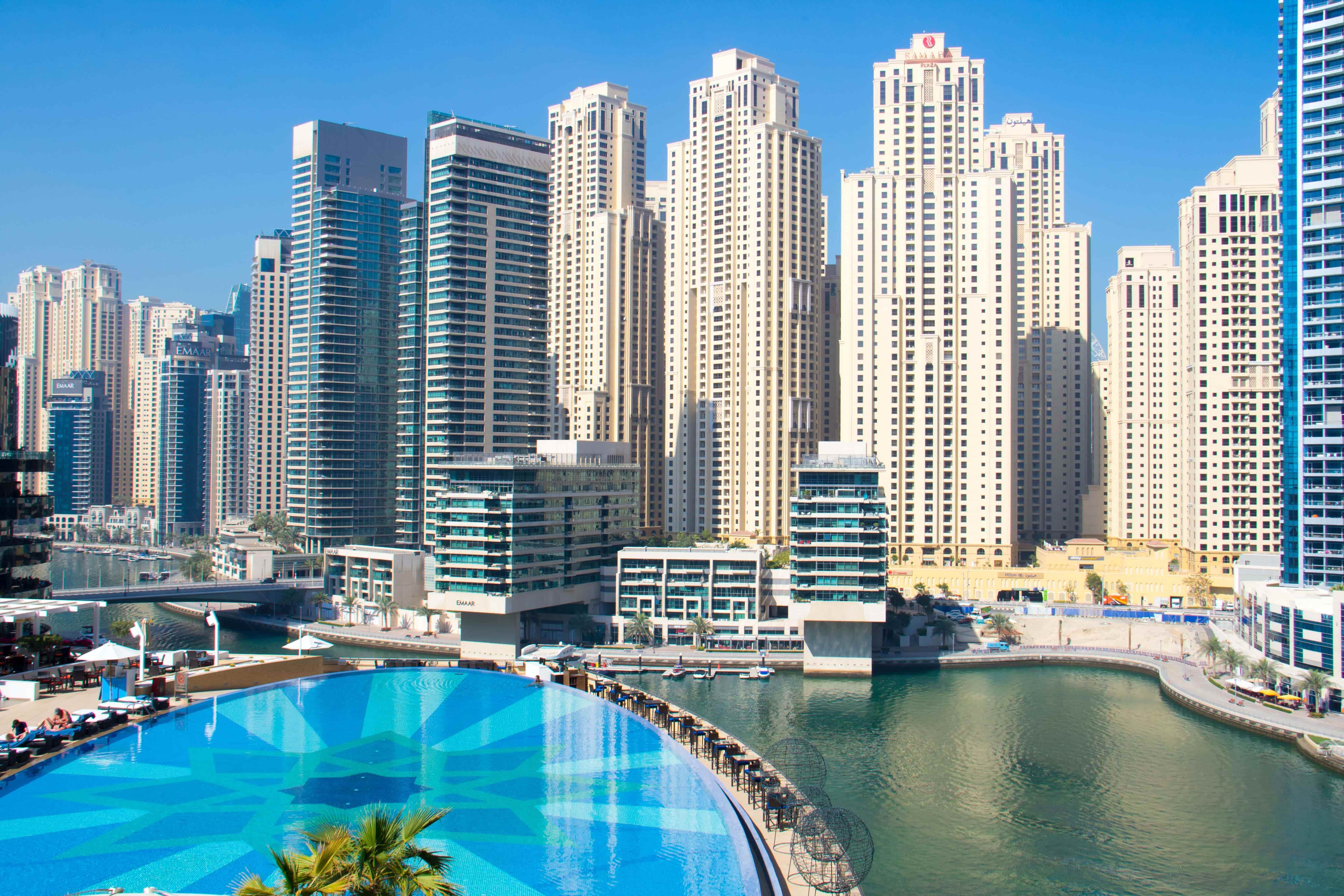DIFC as a destination for Indian Fund Managers
The Dubai International Financial Centre, or DIFC, is a leading financial hub in the region for business, fintech, and lifestyle. Setup in 2004, the DIFC has grown to be one of the top 10 onshore financial centres in the world. It brought in a paradigm change in the region, by adopting a Common Law framework, with an independent regulator (DFSA) and an independent English language Common Law judiciary – DIFC Courts.
Since then, the DIFC District has matured into more than just a place to work – it is now a lifestyle destination, with retail outlets, cafes and restaurants, art galleries, residential apartments, public green areas and hotels dotting the landscape.
UPDATE
The DIFC has some exciting offers for fund managers seeking to get licensed as a domestic fund manager at the DIFC, and setting up funds in the centre. Cumulative savings of US$ 28,000 across two years, and economical office space options. Do contact us for more information.
The India - UAE relationship
India and the UAE have shared warm relations going back centuries. The recent high-level visits of UAE and Indian leaders demonstrate the proactive nature of decision-making between the two countries. Another reason for the greater depth in relations is the rigorous structure of various committees that have been set up following the high-level visits.
In addition, there are enormous possibilities from the $75-billion fund announced in 2015 by Indian Prime Minister Shri. Narendra Modi and His Highness Shaikh Mohammad Bin Zayed.
With a 3.2-million-strong population, the Indian expatiate population in the UAE is the largest in the world, and is growing on a year-on-year basis. Over 1,000 flights operate between the two countries, and recent years have shown a significant increase in the number of tourists traveling from India to the UAE.
In 1982, foreign trade figures between the UAE and India were at around 180 million. In 2016-17, these numbers crossed $52 billion, thus making India the second largest trading partner of UAE, and UAE became India’s third largest trading partner.
At US$ 6.5 billion, India is the third-largest source of FDI in the UAE. Indians are the largest foreign investors in Dubai real estate, amounting to over US$ 5.7 billion, or 13% of the total.
Why setup in the DIFC?
The DIFC is one of the only two financial free zones in the UAE. It offers 100% foreign ownership, as opposed to establishing a financial services firm in the Dubai mainland, where only part foreign ownership is permitted. The DIFC is the preferred gateway for Indian investors to access the Middle East, Africa and South Asia (MEASA) markets on one side and Europe, Asia and the Americas on the other – a region worth an estimated USD 7.4 trillion in annual trade.
DIFC and Indian Companies
The DIFC has a long and successful track record of attracting and supporting Indian companies, and DIFC envisages a major role for India’s business community as it seeks to triple the size of its operations over the next 10 years. Indian business is core to the DIFC 2024 Strategy, with a target to increase the number of Indian firms to over 100 in the next ten years.
Indian firms have a large presence in the DIFC, with companies in wealth and asset management, banking and legal services choosing the DIFC as a strategic hub.
With a strong track record in issuing banking licences to Indian banks, a number of banks have opened in the DIFC, including State Bank of India, ICICI Bank, Punjab National Bank, Union Bank of India and Axis Bank.
The DIFC aims to provide a supportive platform for Indian businesses seeking new markets and territories. Indian companies would benefit from the DIFC’s robust business infrastructure and also gain access to the world’s largest non-resident Indian community, an estimated 3.3 million people.
Prominent Indian companies in the DIFC
Some of the prominent Indian companies that have set up in the DIFC include:
Aditya Birla Sun Life Asset Management Company Limited
Kotak Mahindra Bank Limited
Kotak Mahindra Financial Services Limited
IL&FS Global Financial Services (ME) Limited
IIFL Private Wealth Management (Dubai) Limited
Current scenario
India recently introduced major changes to its domestic tax laws, which is likely to have a significant impact on Indian Fund Managers who have established businesses in Mauritius or are reviewing Mauritius as a possible new domicile for funds.
Three major points to consider:
INDIA - MAURITIUS TAX TREATY RENEGOTIATION
OECD BASE EROSION AND PROFIT SHIFTING (BEPS)
GENERAL ANTI-AVOIDANCE REGULATIONS (GAAR) EFFECTIVE APRIL 2017 PLACE OF EFFECTIVE MANAGEMENT
The impact of the combination of these changes is to place ‘substance’ ahead of ‘form’. Going forward, managers and funds will benefit from being in the same location.
Specific Advantages
Here are some specific advantages of establishing in the Dubai International Financial Centre:
LEGAL AND REGULATORY FRAMEWORK:
- Legal framework supports cross-border activities.
- 100% foreign ownership permitted.
- No restriction on foreign talent or employees.
- No restrictions on capital repatriation.
TAX BENEFITS:
- Zero tax for 50 years on profits, capital or assets from 2004.
- Zero tax on employee income.
COUNTERPARTY CONFIDENCE:
- Highly regarded, independent regulator.
- Independent, English-speaking, common law judicial system.
- Distinct from the UAE legal system.
- Risk-based regulatory approach.
DIVERSE ECOSYSTEM:
- Central to regional deal making.
- High concentration of international firms, investment funds, wealth management firms, banks, and financial institutions.
- World-class regional and international law and auditing firms, and other professional services.
- The largest fund domicile in the region.
GEOGRAPHIC EPICENTRE:
- Management offices, holding companies and family offices are located closer to the assets they own or manage.
- The Middle East, Africa and South Asia (MEASA) is increasingly the centre of gravity for the global economy.
- Dubai plays a central role in the growing South-South trade, principally between Asia and Africa.
- Well-positioned to harness the potential of emerging markets.
How can Indian Fund Managers set up in the DIFC?
The DIFC offers multiple options for establishing a presence in the region. Indian Fund Managers can consider the following scenarios:
- Setting up as an External Fund Manager
The DIFC recognises SEBI – the regulator of financial services in India, as a comparable authority and India as a recognised jurisdiction. In effect, Indian Fund Managers can set up as an External Fund Manager in the DIFC, and the DFSA will take comfort in the fact that the Fund Manager is subject to robust regulation in India. The External Fund Manager thus registered can manage domestic funds, including DIFC Exempt Fund and DIFC Qualified Investor Fund. This is a relatively easier process and is used in scenarios where the Indian Fund Manager wishes to set up feeder funds in the DIFC and solicit investors from the MENA region.
- Setting up as a Domestic Fund Manager
The DIFC also has a fast-track provision for setting up Domestic Fund Managers under a Category 3C license. You can read more about it in our article here. https://10leaves.ae/publications/difc/guide-to-the-difc-fund-manager-license
Types of Funds
The types of funds available include the following:
Exempt Funds
Exempt Funds are open only to Professional Clients (as defined by the DIFC). The other features of an EF are:
- Minimum subscription of US$ 50,000;
- Can have only 100 or fewer unit-holders; and
- Units are offered to persons only by way of a Private Placement.
Qualified Investor Funds
Qualified Investor Funds are open only to Professional Clients (as defined by the DIFC). The other features of a QIF are:
- Minimum subscription of US$ 500,000;
- Can have only 50 or fewer unit-holders; and
- Units are offered to persons only by way of a Private Placement.
Conclusion
The DIFC is a premier destination to live and work and brings with it several advantages and efficiencies. Setting up a company in the DIFC allows financial companies to have a base in Dubai and cater to the expanding MENASA market. It also helps service providers to have a presence in the heart of Dubai, and service multinational firms from the world over. And yes, retail concepts are able to get traction by attracting the attention of high-end clientele!
Indian companies have long operated in the region. The DIFC provides an excellent platform for Indian Fund Managers to explore the MENASA region and provide services to the large Indian community, both in the UAE and in the GCC.
The 10 Leaves Brochure For The Funds
Contact us to discuss your fund requirements today!















 CONTACT
CONTACT